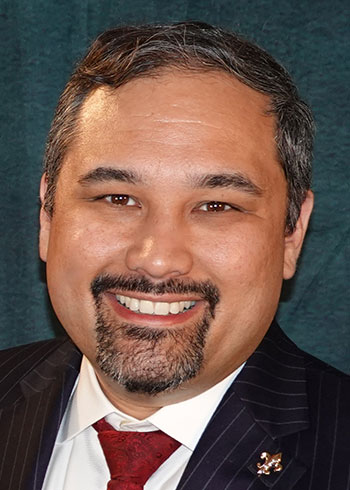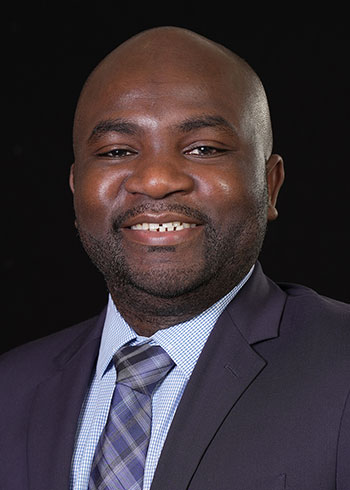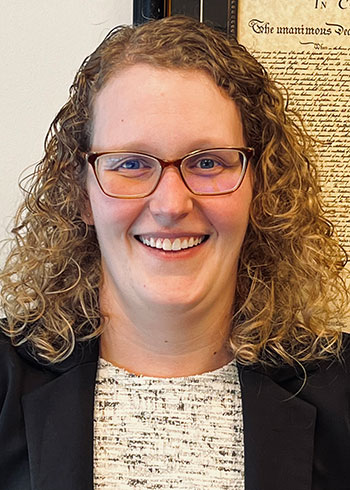
A quarter into the 21st century and generative artificial intelligence (GenAI) is the talk of the town, with its massive implications for all industries, including the legal industry.
According to Clio’s 2024 Legal Trends Report, almost 80% of legal professionals “have adapted AI in some way, and one in four use it widely or universally in their own law firms.” However, the report notes that “the rapid adoption of AI in the legal profession also brings challenges and uncertainty.”
Law firms and legal departments are looking at ways to use AI within the confines of their own systems, applications, and networks – leveraging the technology while preserving confidentiality and security through what’s called retrieval-augmented generation.
“Retrieval-augmented generation (RAG) means retrieving information from your own in-house data sources to augment the performance of large language models (LLM) such as ChatGPT,” according to Klaus Gottlieb at The National Law Review.
According to Clio’s report, “nearly three-quarters of law firms’ hourly work could be potentially automated by AI, which stands to have a dramatic impact on firm revenues.”
Law firms of all sizes, corporate legal departments, and government lawyers are navigating the new technology, which will be an ongoing trend in 2025.
This issue of Wisconsin Lawyer includes articles (and trends) on AI technology. Numerous articles throughout the year will keep legal professionals attuned to the risks and benefits of using AI, as well as its practical applications in the legal environment.
But we aren’t relying on AI to tell us about practice-area trends in Wisconsin. For that, we go to lawyers in the trenches. Ring in the new year with Wisconsin Legal Trends 2025, offering perspectives from 18 lawyers in 18 different practice areas.
Administrative & Local Government Law

“A trend in municipal law will be monitoring impacts to government finances and developing solutions to address budget shortfalls,” said Jenna Merten, city attorney for Brookfield and chair of the State Bar of Wisconsin’s Administrative & Local Government Law Section.
“With costs for goods and services having increased the past few years and state law limiting property tax levies, municipalities must find unique ways to fund their budget, including seeking referendums to increase their levy, finding new sources of revenue, and pursuing intergovernmental agreements for shared services.
“Municipalities will be closely monitoring the legal challenges to Act 10; if the courts overturn the law, municipal budgets will be impacted significantly. Similarly, the new presidential administration will likely initiate policy changes to employment and federal funding and grant programs that may impact municipal budgets.”
Appellate Law

“During its 2023-24 term, the Wisconsin Supreme Court decided just 14 cases – a steep drop from its recent yearly average of about 50, which was already lower than in earlier eras,” said Joseph Diedrich, partner at Husch Blackwell LLP and chair of the State Bar’s Appellate Practice Section.
“Although the number will rise this term, the court still will fall well short of its historical output. Practitioners are having to adjust their expectations and advise clients accordingly.
“Cases that typically would make for promising petitions – including those raising important issues of criminal procedure, statutory interpretation, and common law – now face much steeper odds of supreme court review.
“As a practical matter, the court of appeals has become the court of last resort for the vast majority of disputes. Yet for all its virtues, the court of appeals is ill-suited to fill that role, not least of which because 1) it cannot overrule its own past precedent, no matter how wrong or outdated, per Cook v. Cook; and 2) it cannot treat statements in past supreme court opinions as dicta, per Zarder v. Humana Insurance. In general, appellate practitioners hope the supreme court will review and decide more cases.”
Bankruptcy Law

“Bankruptcy filings may have bottomed out,” according to James Block, a partner at Krautkramer & Block LLC, a Chapter 7 panel trustee, and a member of the State Bar’s Bankruptcy, Insolvency & Creditors’ Rights Section board.
“Filings are up 16.2% compared to 2023. We have been getting increased phone calls from small businesses that may have survived the pandemic but have had fewer sales because customers have less purchasing power due to higher inflation. Small businesses are also filing more collection actions against non-paying customers.
“As of June 21, 2024, the temporary Subchapter V debt limit has gone from $7.5 million back down to $3 million. This will likely make it harder for some small businesses to restructure their debts.
“Consumer bankruptcies are also on the rise. We have seen increased consumer bankruptcies due to high credit card debt, medical debt, and fraud. Needing to file because of fraud is particularly concerning because fraudsters target elderly debtors via social media on smartphones. These elderly debtors may be subject to phishing emails or texts claiming to be from the government, such as the IRS; their bank; or a romantic interest.”
Business Law

“The business law practice area, like the broader legal industry, is being transformed by AI, particularly its impact on the billable hour model,” said Lanre Abiola of Prestige Law Office LLC, a member of the State Bar’s Business Law Section board.
“Large corporate firms are adopting AI tools to handle complex tasks more efficiently, such as legal research and drafting documents, which traditionally consumed significant attorney time. Although AI won’t replace lawyers, it will enhance productivity by allowing attorneys to focus on higher-value, strategic work.
“Tools like generative AI streamline processes, reducing the time spent on routine tasks. However, I believe that this efficiency may disrupt the traditional reliance on billable hours, a cornerstone of many large firms’ revenue models.
“Ultimately, while AI offers operational benefits and cost savings, it may lead to fewer billable hours and job opportunities in big corporate law firms. The legal industry must adapt to these changes while ensuring client needs are effectively met.”
Children in the Law

“Since the COVID-19 pandemic, there have been increasing concerns related to youth mental health, the lack of adequate services for children with complex needs, and the engagement of families involved in multiple legal systems,” said Alaina Fahley, an assistant state public defender and chair of the State Bar’s Children and the Law Section.
“Legal practitioners who represent agencies, counties, parents, and children have needed to address these concerns at both a policy and case-by-case level.
“Wisconsin has made national news in the past few years related to the treatment of its children in the juvenile legal system while balancing concerns related to community safety. Wisconsin is one of only four states that still treats its 17-year-olds as adults and has needed to address the treatment of youth as adults.
“Under Wis. Stat. section 938.183, the state has original adult-court jurisdiction over youth charged with serious crimes. In response, defense attorneys have also needed to address this through requesting reverse waivers from adult court to juvenile court, and a recent appeals court decision concluded that juvenile defendants have a limited right to pre-hearing discovery in such cases.
“In the realm of termination of parental rights, there has been active litigation as to the burden of proof that applies at dispositional hearings. The courts have been struggling to define what if any burden of proof applies and to whom at the dispositional phase.”
Civil Rights Law

“I believe the focus in the civil rights context for the next few years will be directed toward a rollback of diversity, equity, and inclusion (DEI) gains and litigation dealing with the fringes of the civil rights laws for the last 30 years,” said Nate Cade of Cade Law Group, chair of the State Bar’s Civil Rights and Liberties Section.
“More specifically, there will be an uptick in litigation for matters that are considered ‘woke’ or matters that are politically liberal. Already, there have been several U.S. Supreme Court and federal court cases challenging affirmative action in the classroom and hiring practices. Not only will this increase in scope of litigation, but expect further challenges with regard to scholarship awards based on race, sexual orientation, and so on.
“Also expect more challenges regarding issues of religion. There have been a number of challenges, all gaining traction, with regard to religious affiliation of schools and receiving public funds. Those challenges will continue, and likely include claims of religious persecution through the denial of bibles and ten commandment statues in the classroom.
“One should also expect an increase in litigation and legislation with regards to the rights of transgender and queer individuals, especially in the classroom setting or for minors.
“Finally, with the increased emphasis on state legislatures making the decisions pertaining to bodily autonomy as in the Dobbs decision, expect an increased focus on lawsuits challenging state laws and allegations of legislative overreach in the areas of civil rights, the LGBTQ community, and women’s autonomy of their bodies.”
Criminal Law

“In the upcoming year, criminal law practitioners and testing agencies can expect obstacles in navigating the impact of Smith v. Arizona, 144 S. Ct. 1785 (2024),” according to Nicole Muller of Birdsall Muller LLC, chair of the State Bar’s Criminal Law Section.
“Prior to Smith, Wisconsin courts permitted analysts to testify about an absent analyst’s findings, holding that it does not raise a confrontation clause issue. Now, it is not so simple.
“Now, if the findings of an absent witness are deemed to be testimonial, the admission of said findings would raise a confrontation clause issue. The remedy would be the exclusion of the evidence, unless the original analyst can testify.
“Unfortunately, many state analysts have retired or left their positions. This has caused testing agencies to retest samples so that the findings are admissible.
“However, staffing shortages and the backlog of tests present a significant burden on state agencies that will hinder the prompt litigation of cases in 2025 and years to come.”
Elder Law

“Our population is getting older. Elder abuse and financial exploitation issues grow and evolve. Mental health issues are everywhere,” according to Jessica Liebau of Wessels & Liebau LLC, chair-elect of the State Bar’s Elder Law and Special Needs Section.
“The need for people to have quality decision-makers who can act on their behalf is crucial. Planning for long-term care for elders, and transition planning for younger individuals with disabilities, while respecting the inherent dignity of our most vulnerable people in society, is an ever-growing puzzle.
“This puzzle is made up of resource-strapped court systems and adult protective service units, decreased funding to legal services agencies, and generally well-meaning but occasionally overstepping family members and lawmakers who sometimes attempt to find quick fixes for what can be incredibly complex cases.
“But the solutions are out there! An elder law and special needs practice is an ideal environment for attorneys who want to do meaningful, complex work while also making a good living, either in court or in a transactional manner.”
Family Law

“An unfortunate growing trend in the area of family law is a dramatic increase in the level of conflict and hostility in family court,” according to Donna Ginzl of Anderson O’Brien LLP, chair of the State Bar’s Family Law Section. “This increased conflict is not limited to litigants in family law matters but is also rearing its head with family law attorneys.
“Sadly, this trend seems to be contributing to another trend, which is a decrease in attorneys who will handle family law matters. This leads to more unrepresented parties. In my experience, there are a couple major factors contributing to this trend.
“First, throughout the state, but in particular in the more rural ‘legal deserts’ of Wisconsin, the demand for family law attorneys vastly exceeds availability. This often results in individuals navigating the emotional and often difficult legal process without representation. This can leave divorcing parties without counsel in the early stages of separation, which are often the most stressful, unsettling, and unpredictable.
“Second, social media provides a very public outlet for the parties to air their unresolved emotional issues in a way that not only fuels both parties’ emotional dysregulation but is also often available to be viewed by children. When litigation goals are fueled by public battles that are often irrelevant to the actual legal issues, it becomes difficult for parties, even represented parties, to focus on the topics that matter to the legal dispute.”
Health Law

“Data privacy and security continue to be hot topics in health care,” according to Stephane Fabus of Hall, Render, Killian, Heath & Lyman PC, chair of the State Bar’s Health Law Section. “Interestingly, there is a growing tension between laws that aim to expand privacy and give patients greater rights and control over health care data and those laws that encourage or even require broader sharing of patient data in support of interoperability, quality improvement, research, public health, and health care advancement.
“In addition to its ongoing patient-right-of-access initiative, the Office of Civil Rights announced a security-risk-analysis initiative in response to continuing concerns regarding large-scale data breaches, meaning more enforcement settlements will likely be announced in the future. Multiple states – though not yet Wisconsin – have also adopted general data protection regulations, giving consumers rights to protect and control their data.
“When combined, this has created a complex web of regulations on the permissible use and disclosure of health information that is a challenge for health care providers to navigate. For example, de-identification, aggregation, and use of health care data in artificial intelligence technologies often have to be assessed under regulatory authorities that have not yet caught up with the state of technological advancement.
“It will be interesting to see how this balancing of interests trends under the new administration in 2025 and whether Wisconsin pursues state legislation on these topics.
Intellectual Property Law

“The last year was a busy one for intellectual property law, with multiple court decisions affecting IP and new IP legislation introduced in Congress,” according to Erin Kaprelian of Jones Robb PLLC, chair of the State Bar’s Intellectual Property and Technology Law Section.
“The U.S. Supreme Court issued decisions in Warner Chappell Music Inc. v. Nealy (affirming that a copyright owner may recover damages for acts occurring more than three years before a lawsuit was filed) and Vidal v. Elster (rejecting the claim that refusal to register a trademark critical of a government official is a violation of the First Amendment). This term, the U. S.
Supreme Court will decide whether an award of defendants’ profits for trademark infringement can include the profits of legally separate corporate affiliates (Dewberry Group Inc. v. Dewberry Engineers Inc.).
“The U.S. Court of Appeals for the Federal Circuit also tackled multiple IP issues, including non-obviousness double patenting, admissible evidence relating to whether claims are infringed, and the standard for determining obviousness of design patents.
“In addition, Congress introduced the PREVAIL Act, which includes reforms to the Patent Trial and Appeal Board (PTAB), including requiring standing and limiting multiple petitions against the same patent. The PREVAIL Act has moved out of committee and to the full Senate floor, where it is sure to be watched closely by IP practitioners.”
International Law

“2024 was once again a dynamic year for international trade lawyers due in large part to global events that underpin international commerce,” according to Ngosong Fonkem, an international trade attorney and partner at Amundsen Davis LLC and a member of the State Bar’s International Practice Section board. “A few notable trends that shaped the trade landscape creating opportunities for lawyers are summarized below.
“The most consequential development affecting international trade law in 2024 arose from the ongoing conflict in the Middle East. This conflict exacerbated pressures on critical shipping routes, notably the Red Sea, which previously facilitated approximately 12% of global trade. These disruptions caused delays for companies across manufacturing, retail, and other sectors reliant on the efficient movement of goods. Prolonged interruptions threaten to further disrupt production schedules and impair customer fulfillment, with cascading legal and economic ramifications.”
“With the election of President Trump for a second term, the U.S. is poised to continue to deploy expansive international trade tools to respond to national security concerns and to achieve foreign policy goals based on President Trump’s first administration’s trade practices, trends and developments under the Biden administration over the last four years, and president-elect Trump’s campaign promises and early personnel appointments.
“Ongoing trade tensions between the U.S. and China continued to reshape the global economic landscape in 2024. These tensions continued to be manifested through expanded export control restrictions and increased scrutiny of technology transfers, particularly in sectors like semiconductors, artificial intelligence, renewable energy, and electric vehicles, prompting companies to continue to diversify and reevaluate their manufacturing bases.”
“Despite the disruptive flashpoints, many international trade practitioners continually found ways to adapt to unexpected changes to their business environment. That trend will continue in 2025.”
Labor and Employment Law

“2025 is likely to bring major changes to labor and employment law, particularly in the area of administrative agency priorities and enforcement,” according to Erica Reib of O’Neil Cannon Hollman DeJong & Laing SC, chair-elect of the State Bar’s Labor and Employment Law Section. “Recently, government agencies have been attempting to expand their reach, as exemplified by the Federal Trade Commission’s publication of a rule banning non-competes, which was later enjoined by a federal district court in Texas.
“The National Labor Relations Board has also overturned a number of pro-employer decisions and published guidance limiting what employers can do when dealing with unions and union organizing. However, with the U.S. Supreme Court overturning Chevron and the incoming Trump administration, the reach of administrative agencies could be limited and many current rulings and guidance memos reversed or rescinded.
“This could affect a broad range of labor and employment areas, including restrictive covenants, labor relations, overtime, minimum wage, pay equity, and safety.”
Public Interest Law

“There is no way to deny that another Trump administration in 2025 will impact public interest law in major ways,” said Christine Huberty, an attorney with the Center for Medicare Advocacy and chair of the State Bar’s Public Interest Law Section.
“Many public interest clients are immigrants, disabled, or have low income and assets. Unfortunately, much political rhetoric has focused on immigrants as well as public programs such as Medicaid. Most public interest attorneys and advocates have already been working to identify key areas to focus on in their fields in 2025, in addition to identifying any bipartisan supporters of public interest programs.
“A key component to advocacy is always education. Public interest attorneys will need to cut through the noise of what is reported in the news and on social media platforms to ensure clients understand changes in policies and their rights.”
Public Utilities Law

“Dictionary.com defines the public interest simply as the ‘well-being of the general public,’ but, considering the many factors at play, this construct is anything but simple,” according to Cara Coburn Faris, general counsel for the Citizens Utility Board of Wisconsin and vice chair of the State Bar’s Public Utilities Section. “Public interests often compete, and sometimes public interests even correlate positively with private interests.”
“The Wisconsin Public Service Commission (PSC) specifies its role as protecting the public interest in ‘safe, reliable, affordable, and environmentally responsible utility services.’ On the public participation channels the PSC maintains to collect relevant evidence about the public interest, public participation is growing.
“For example, the record for one investor-owned utility’s (IOU) 2018 rate case had four public comments, while the 2023 rate case record had 711. The record for another IOU’s 2019 rate case had 98 public comments, while the 2022 rate case record had 1,196.
“These comments are sworn statements of captive customers’ lived experiences with their public utility services. Given the breadth and sheer number of comments, regulation could benefit from new tools to process this evidence and draw meaningful and actionable conclusions from it.”
Real Estate Law

“The FBI’s Internet Crime Complaint Center (IC3) received a record 880,418 complaints, with potential losses exceeding $12.5 billion, up from $10.2 billion in 2022,” according to Cheri Hipenbecker, general counsel with Knight Barry Title Group and a recent State Bar of WisconsinPINNACLE® presenter on e-signature technology, remote witnessing, and remote notarization.
“The real estate settlement sector is at the epicenter of cybercrime with international criminal syndicates inserting themselves into transactions to divert wire transfers from buyers in their cash to close, transfers from settlement companies in sending seller proceeds and mortgage payoffs, and creating transactions from whole cloth by impersonating owners of real property and providing fake credentials and fake notaries.
“The cyber criminals are leveraging generative AI to improve their processes to compromise emails, monitor transactions, and to divert money. 2025 will see the real estate settlement industry continue to pivot, educate, and introduce legislation to combat these crimes.
“The Financial Crimes Enforcement Network (FinCEN) is another crime-fighting effort to identify money laundering nationwide in the real estate sector. Starting Dec. 1, 2025, there are mandatory new reporting requirements to FinCEN.
“The reporting will be mandated for residential and vacant land transactions when there isn’t a traditional bank involved and the grantee will be an entity or a trust. Failure to report can subject the settlement agent or drafter of the deed to both civil and criminal penalties.”
Sports & Entertainment Law

“Artificial intelligence (AI) has permeated its way into multiple facets of the sports industry,” according to Jill Ingels, vice president of legal and business operations at Milwaukee Bucks Inc. and chair of the State Bar’s Sports and Entertainment Law Section.
“That includes facial recognition technology used to enter or utilize frictionless checkouts at sports arenas and stadiums, and chatbots and voice-activated video assistants to enhance customer service and the fan experience. It also includes technology platforms used for performance analytics purposes or to drive on-court or on-field decision-making.
“From a legal perspective, though, the use of AI presents complex legal issues that lawyers need to be mindful of, including intellectual property and data privacy considerations, publicity rights, ethical considerations, and liability.
“When organizations use AI systems, the organization collects data from consumers, whether player movements, facial features, or questions about an order status or ticket package option in order to allow the system to analyze those data points using algorithms to learn and mimic human decision-making and intelligence.
“The challenge for lawyers representing organizations collecting such data is obtaining appropriate consent from consumers while plainly disclosing how it intends to use the data while complying with the appropriate – and ever-changing – data privacy frameworks.
“In short, while AI can allow sports leagues, conferences, and teams to innovate the game, the lawyers representing these entities should proceed cautiously and understand the full scope of the AI tools being utilized to ensure their client is compliant with all applicable regulatory and legal requirements.”
Tax Law

“Effective Jan. 1, 2024, personal property is excluded from the definition of ‘general property’ under Wis. Stat. § 70.01, which imposes a tax ‘upon all general property in this state except property that is exempt from taxation,’” according to Smitha Chintamaneni of Husch Blackwell LLP, vice chair of the State Bar’s Taxation Law Section.
“Although the non-taxability of personal property is welcomed by assessors and taxpayers alike, the implementation of these changes will not come without its challenges. For example, under Wis. Stat. section 70.17(3), ‘buildings, improvements, and fixtures on leased lands’ and ‘buildings, improvements, and fixtures on exempt lands’ shall be assessed as real property. The shift from personal property assessment to real property assessment in this context is likely to result in two types of challenges.
“First, taxpayers may challenge whether certain property should be reclassified as taxable ‘buildings, improvements, and fixtures’ or, instead, should retain its character as non-taxable personal property.
“Second, even if its property is properly classified real property, taxpayers may find themselves objecting to assessments that increased due to a shift in assessor valuation methodology (for example, from assessing the property under an indexed-cost approach to assessing that same property under a sales and/or income approach). Stay tuned.”
Legal Employment Trends
Legal Administration

“Our research reveals the prevailing trend that law firm associates and staffers continue to put a premium on workplace flexibility since the pandemic,” according to Eryn Carter, executive director of the Association of Legal Administrators based in Chicago.
“Remote and hybrid work policies are still very much on the radar of prospective and current law firm employees and are guiding how firms are developing and changing recruitment incentives and compensation packages.
“Our annual Compensation and Benefits Survey shows that 82% of firms have at least some segment of their staff working remotely. Law firm employees continue to value policies that allow them to spend part of their work weeks outside the office despite the end of the pandemic, considering the arrangements to be a significant employee benefit on par with salary and medical insurance.
“This is an upward trend from previous years. In addition to the continuation of policies that began during the pandemic, legal managers who are responsible for administering these office policies and keeping people informed must be prepared to be responsive to additional requests from employees that may be outside the norm of how legal organizations have traditionally operated.
“Paid parental leave and discretionary bonuses are examples of other trends that are impacting the work environment. Firms that are less inclined to be flexible in these areas may find it more challenging to recruit or retain top talent.”
Legal Research

“AI-enabled research tools continue to be the leading trend for legal research heading into 2025 as they evolve and gain greater adoption,” according to Laura Olsen, research training and engagement manager at Quarles & Brady LLP and a member of the State Bar’s Communications Committee.
“These tools accelerate legal research, present primary and secondary legal authority in innovative ways, and should supplement and enhance – not replace – traditional legal research. GenAI research tools are based on large language models, and users must learn how to best engineer prompts to maximize results, streamline research workflows, and mitigate potential risks.
“It is important to socialize and understand your clients’ expectations on the use of GenAI research tools. Some clients expect their counsel to leverage such tools to enhance efficiency, while others have guidelines limiting their use. Practitioners must invest time to understand how to best utilize these technologies and how to vet and validate results. In short, verify, then trust. Ethical obligations surrounding diligence, confidentiality, and competence should be top of mind when leveraging AI-powered legal research tools.”
Legal Marketing

“Successful attorneys have always relied on referrals to build and maintain their book of business. That is nothing new,” according to Emily Kelchen of Kelchen Consulting, past chair of the State Bar’s Communications Committee.
“But there is a renewed focus on this sort of business generation as people reevaluate the benefits they get from being a member of a bar association, chamber of commerce, community not-for-profit, or even the country club.
“The pandemic forced everyone to pause in-person gatherings, and many people are being careful about what they recommit to. From a marketing perspective, this means asking yourself:
Does my intake process show certain organizations or activities are generating business inquiries?
Are there other organizations that would give me better opportunities for professional or personal growth?
Is there a way to leverage the time I’m spending with a particular organization to get more exposure? Like a speaking engagement, social media posts, or traditional media coverage?
“If you can’t pinpoint the value you are getting in return for the time or money you are investing into an organization, it’s time to make some changes.”
 Joe Forward, Saint Louis Univ. School of Law 2010, is communications director for the State Bar of Wisconsin, Madison. He can be reached by email or by phone at (608) 250-6161.
Joe Forward, Saint Louis Univ. School of Law 2010, is communications director for the State Bar of Wisconsin, Madison. He can be reached by email or by phone at (608) 250-6161.
» Cite this article: 98 Wis. Law. 8-15 (January 2025).
